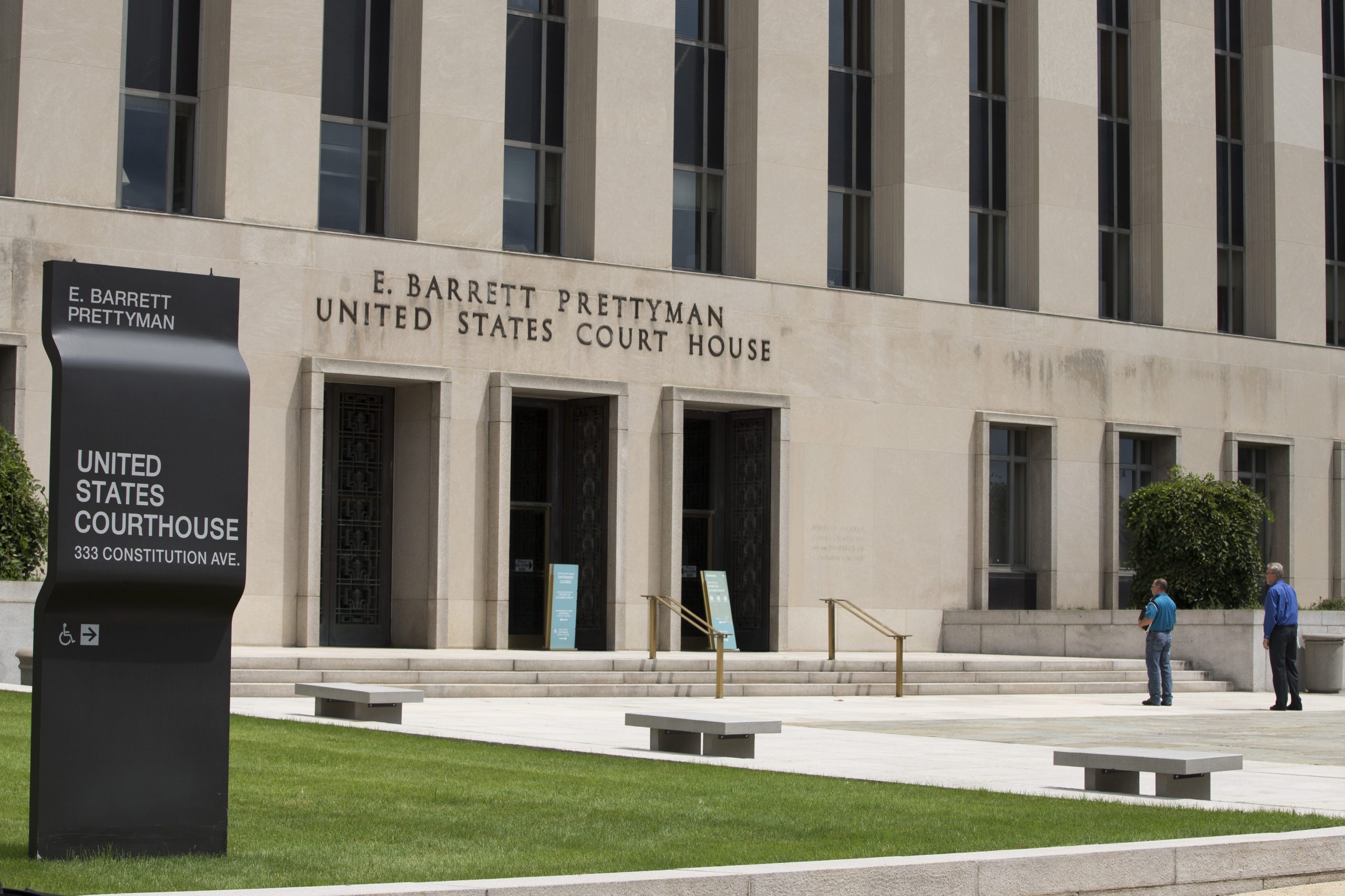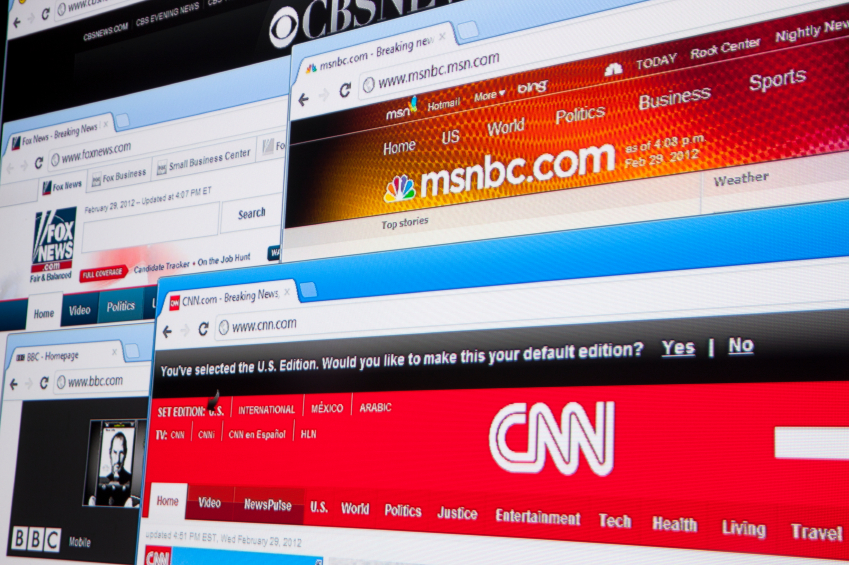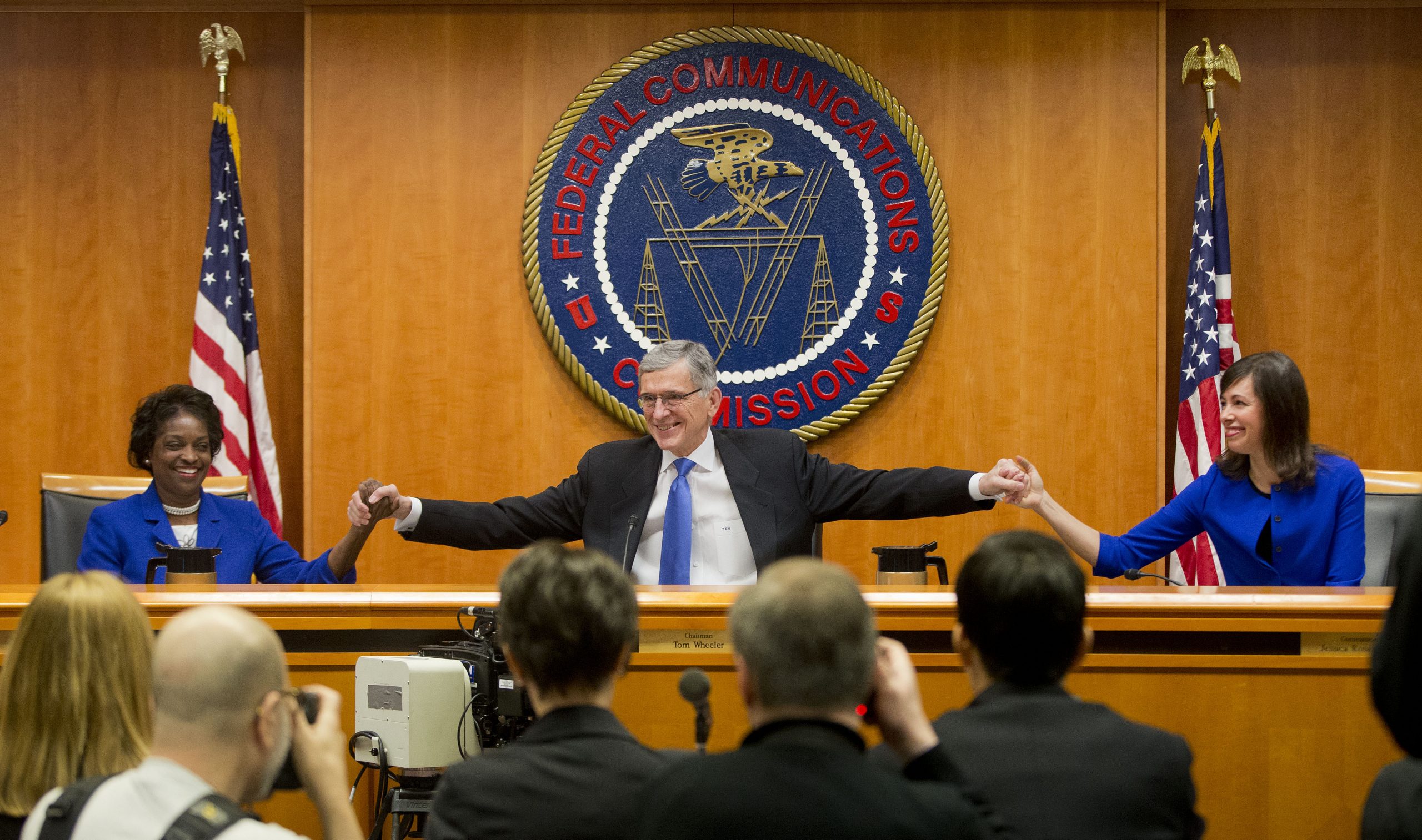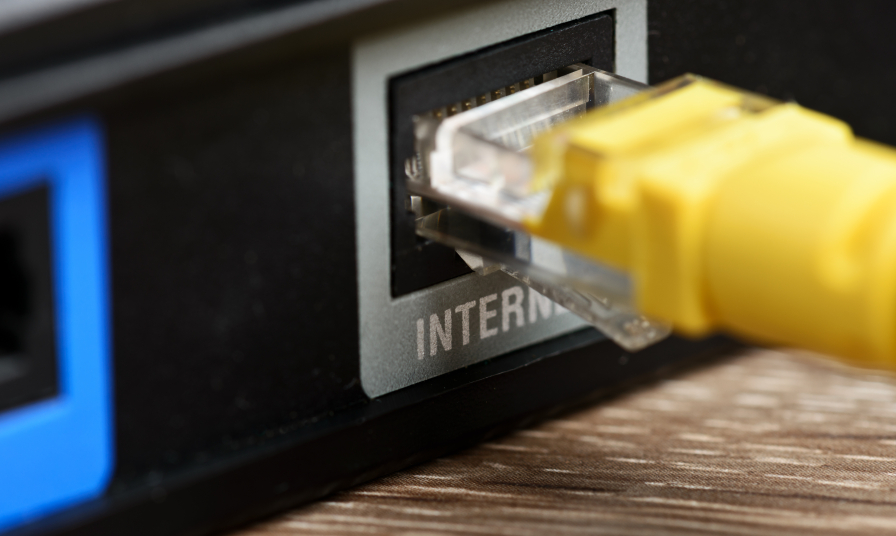Since the Federal Communications Commission passed Title II regulations reclassifying Internet service providers as common utility companies in February, Rep. Marsha Blackburn, R-Tenn., has been at the forefront of the fight to reverse them. Critics say the rule change represents an overreach by the FCC, erodes consumer protection and curtails free speech rights.
If a federal court takes action, there may be no need for a congressional solution. The U.S. Court of Appeals for the District of Columbia is set to hear oral arguments against the rules on Dec. 4. Blackburn has led a coalition of 22 lawmakers in filing an amicus brief supporting appellants in the case, arguing that Congress never granted the FCC the statutory authority to reclassify an industry on its own.
Arguments made in the nine lawsuits range from the technical (the FCC misunderstands the mechanics of the Internet) to the constitutional (the FCC ruled that ISPs don’t have First Amendment Rights). Regardless of how the court rules, observers expect the losers to appeal, which means it could spend years in the judicial system.

The U.S. Court of Appeals for the District of Columbia is set to hear oral arguments against the rules on Dec. 4. (AP file)
Regardless of how it happens, Blackburn views defeat of the rules as critical, saying they are just the first step in an incremental, “broader push” by the federal government to control the Internet. If they aren’t defeated, she suggests, it could lead to a host of ill effects that include the regulation of political content on the net, rate regulation, higher costs, and ultimately less accessibility for Americans.
Washington Examiner: What do you think the stakes are if the court upholds Title II?
Blackburn: If the court upholds Title II next year, hold onto your Internet, because it’s going to change. I think what you will see happen is that it will lead to rate regulation, and the FCC is going to have its hand in the middle of that.
You are going to see increased fees, you will also begin to see taxes. I thought it was so interesting last year when you had the Progressive Policy Institute produce a report stating that it was going to cost $11 billion in new taxes. You’ve had estimates of $4 billion that are out there. The point that everybody agrees on is, it’s going to cost you more, and there will be taxes and fees that will be substantial.
The third thing is it puts the government in there, with a hand on that nexus, if you will. It gives them the ability to determine where content is placed, or if content gets a place on the pipe at all.

Critics have said that Title II could allow the FCC to regulate political content on the web. (iStock photo)
Examiner: Appellants in this case have a long list of arguments: Free speech rights of ISPs have been violated, the economic impact is too significant, proper notice wasn’t given in the rulemaking process, there’s your point that the FCC doesn’t have the statutory authority. Is there one argument that you view as being the most important?
Blackburn: I think the issue dealing with content regulation, government having a say in that, government preceding the ISPs, at the juncture — that is something that is of concern to me.
Rate regulation is also a tremendous concern, increased fees are, the loss of liberty, and the pre-empting of free speech is of tremendous concern to me. I think everyone is very worried about that right now.
Examiner: Critics have said that if Title II is allowed to stand, it could allow the FCC to regulate edge providers — specifically political content on the web, for instance, by applying the Fairness Doctrine to websites like the Drudge Report, Fox News, or the Washington Examiner. Do you see that as a threat?
Blackburn: I think the FCC is probably not going to touch the edge providers [entities that connect to the web, such as Google and Facebook]. They seem to favor groups, such as the Internet Association, and the edge providers had their rules governing the interconnection, they had been concerned about that, and they got it straightened out behind closed doors at the White House. So the tech crowd is going to be fine.
I think it’s kind of ironic that the Internet Association filed a brief supporting the FCC’s action to pre-empt North Carolina and Tennessee municipal broadband laws. Even [the Department of Justice] did not even go that far.
Now when it comes to the content side, I have the sense that this is the very beginning of the net neutrality debate. I’ve been very concerned about net neutrality turning out to be the Fairness Doctrine of the Internet, and having that applied to websites.
And that is something that we have to be very mindful of and very watchful of. It is one of those Title II concerns that I have.

The FCC is one of many agencies calling for regulation of the Internet. (AP file)
Examiner: Several entities have called for regulating components of the Internet: The FCC, the Federal Elections Commission, President Obama. Do you view Title II as part of that broader push?
Blackburn: Yes, I think it is part of that broader push, because it’s part of the federal government in control of that pipeline. That is what they want.
The Internet is not broken. It does not need the FCC and FEC governance in order to carry on, if you will. Another example of where the FCC is pushing is they’re trying to use this net neutrality and Title II authority to get in and become an online privacy regulator, and that has traditionally been an FTC function, and that’s where it should stay.
Examiner: The Federal-State Joint Board on Universal Service has the ability to impose the universal service fee on consumers. They haven’t made a decision yet, and have suggested they’re going to wait. If they’re confident in their legal standing and the worthiness of Title II as a whole, do you think they should just make a decision now?
Blackburn: What they want to do is put it in incrementally so that people don’t see a big jump in their costs, so that the consumer doesn’t see a big jump in their costs. The USF is one of those things that probably has outlived its usefulness, and it is a tax that we should be getting off the books instead of applying it to the Internet.
Examiner: Do you think that Internet service could be more accessible as a result of Title II, or do you think that the increase in costs will make it less accessible?
Blackburn: It’ll make it less accessible because of rate regulation, because of increased fees and taxes, if you retitle it as Title II, then you’re going to have this enormous push to put government more in the center of it, and the price is going to go up, that means fewer people can afford it, and it means we’re going to see broadband expansion slow because of a restriction or a slowing down of private capital and private investment.

Blackburn believes Title II would make the Internet less accessible.
Examiner: Do you think Republican leadership has been as passionate in fighting Title II as Democrats have been in pushing it?
Blackburn: Republicans have fought it. We’ve fought it. It’s hard for me to imagine anyone fighting it as consistently and as passionately as I have. We have over 50 co-sponsors on the Internet Freedom Act. I think we don’t get the amount of publicity that the Democrats get, we don’t get the amount of media attention, but that doesn’t stop me or deter me. Title II is a really bad deal. It’s a bad deal for the American consumer, it’s a bad deal for free speech, and it’s the wrong step.
Examiner: What other legislative solutions do you see?
Blackburn: We can go through the appropriations process via the omnibus and do some things. The Internet Freedom Act, of course, is something we would like to pass, and until we can get it passed, I think that defunding through the appropriations process is the right step.
Related Story: http://www.washingtonexaminer.com/article/2570147
My hope is we can get it wrapped up this year.
